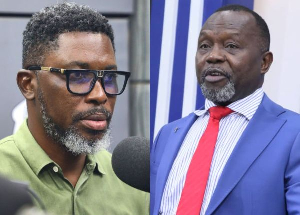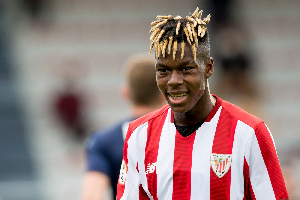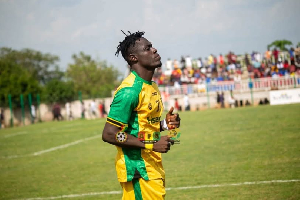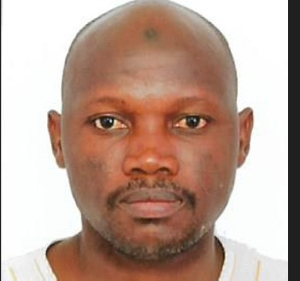By Kwame Okoampa-Ahoofe, Jr., Ph.D.
Garden City, New York
Nov. 28, 2015
E-mail: okoampaahoofe@optimum.net
I have two brief pieces of news articles before me. One of them is captioned “I Almost Became Impotent – Anas,” while the other is titled “My Family Is Worried over My Work – Anas” (See Starrfmonline.com / Ghanaweb.com 11/19/15). The two pieces of write-ups are from a single interview that celebrated investigative journalist Mr. Anas Aremeyaw Anas reportedly granted Bola Ray, host of the Starr Chat talking heads program. In the first piece, Mr. Anas reveals some of the dangerous experiences that he has put himself through while trying to get to the heart of some of the exposés that have him the living legend and journalistic institution he is today.
In one instance, the Chief Executive Officer of Tiger-Eye PI, the spooky team of undercover investigators he uses as backup for his sleuths, claims to have “taken in all the cocaine and other stuff into my system as part of the work.” Now, I don’t know what sort of undercover work he did at the Accra Psychiatric Hospital, popularly known as Asylum, I suppose. But it bizarrely comes off to me that a man who is willing to swallow chunks of commercial-grade cocaine, to the point of having his male member, or genitalia, lapse into the sexual equivalent of a coma, may be deeply afflicted with a quixotic sense of patriotism that even the President of Ghana cannot half approach. In theory, one is all too apt to feel proud of the man. He is definitely an enviable pioneer, as long as serious investigative journalism in the country is concerned.
My worry, though, regards whether such epically sacrificial work is remarkably matched by the necessary input from our national security agencies. And if the dear reader were to ask for my honest-to-God opinion on this count, I would, of course, answer emphatically in the negative. I mean, we cannot in the best possible of human realms expect Mr. Anas to be all things to all people. Which pretty much explains the contents of the second article, in which Mr. Anas is reported to be worried sick about the safety of the talented investigative journalist cum professionally trained lawyer. In the largely bald terrain of Ghanaian journalism, that is a superb combination of knowledge and skills. Which is why Mr. Anas’ standout stature on the Ghanaian media landscape hardly comes to me as any bit of a surprise. He incontrovertibly enriches this otherwise area of professional practice which is unhealthily fraught with mediocrity. But then so is nearly every field of national endeavor, from academia to science and technology.
The rhetorical interrogative that forms the caption of this article was reported by the legendary lambent-witted lawyer and brother-in-law of England’s Queen Elizabeth II, Mr. Joseph “Joe” Appiah, a one-time staunch associate of President Kwame Nkrumah. Uncle Joe would later become the inveterate foe of the African Show Boy. Joe Appiah would also spend quite a bit of his most productive years behind bars, under Nkrumah’s infamous Preventive Detention Act (PDA) or Protective Custody (PC). That was how deft and crafty Mr. Kwaku Ananse Kofi-Nwia Kwame Nkrumah was. The concept of “Protective Custody” presupposed that the victim of such “custody” was being removed from society in order to protect him from doing harm to both himself and society and large. But, of course, it was to thoroughly eradicate any form of rational resistance to the extortionate dictatorship of the Nkrumah-led Convention People’s Party (CPP).
Well, according to Mr. Joe Appiah, one day as they lay supine on two thin separate sheets of blankets at the Nsawam Medium-Security Prison, Dr. J. B. Danquah, the putative Doyen of Gold Coast and Ghanaian Politics turned sideways to the much younger Uncle Joe, and in a despondently hoarse tone of voice asked his veritable political and ideological nephew: “My dear nephew, is Ghana worth fighting for?” For Anas Aremeyaw Anas, I suppose this question can be answered in two ways. One, is the young military brat certain that his heroic and sacrificial efforts are making the requisite dent in the uphill battle against bribery and corruption in Ghanaian civil-service culture, beyond an occasional comic relief, for diehard cynics like yours truly, and cathartic and moral rejuvenation for the rest of Ghanaian citizenry?
If the answer to the foregoing question is unabashedly “Yes!” then, indeed, Mr. Anas is on to something great. The next question then becomes: Does the Tiger-Eye PI CEO honestly believe that the level of corruption in the country is a marked improvement upon what it was at least a year or two ago? If, here again, Mr. Anas cocksure as hell answers this question in the affirmative, then, of course, there can be no gainsaying that Ghana is steadily on the road to becoming a modern, civilized postcolonial polity.
Opinions of Sunday, 13 December 2015
Columnist: Okoampa-Ahoofe, Kwame














